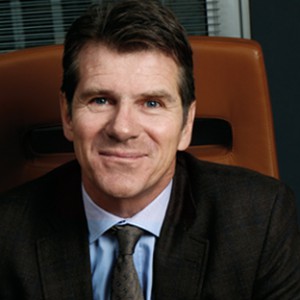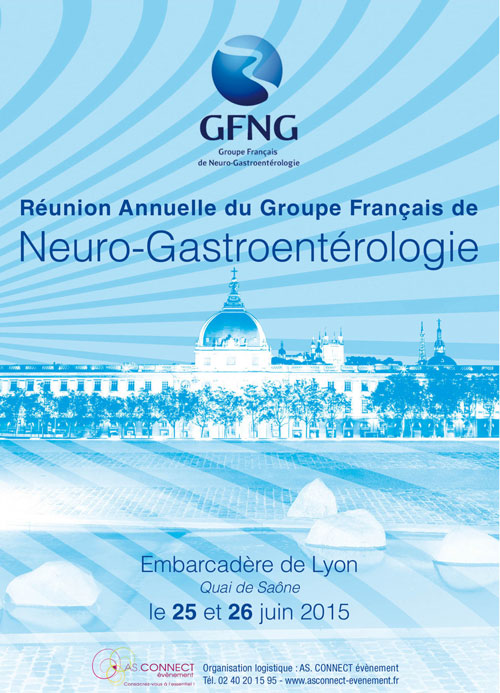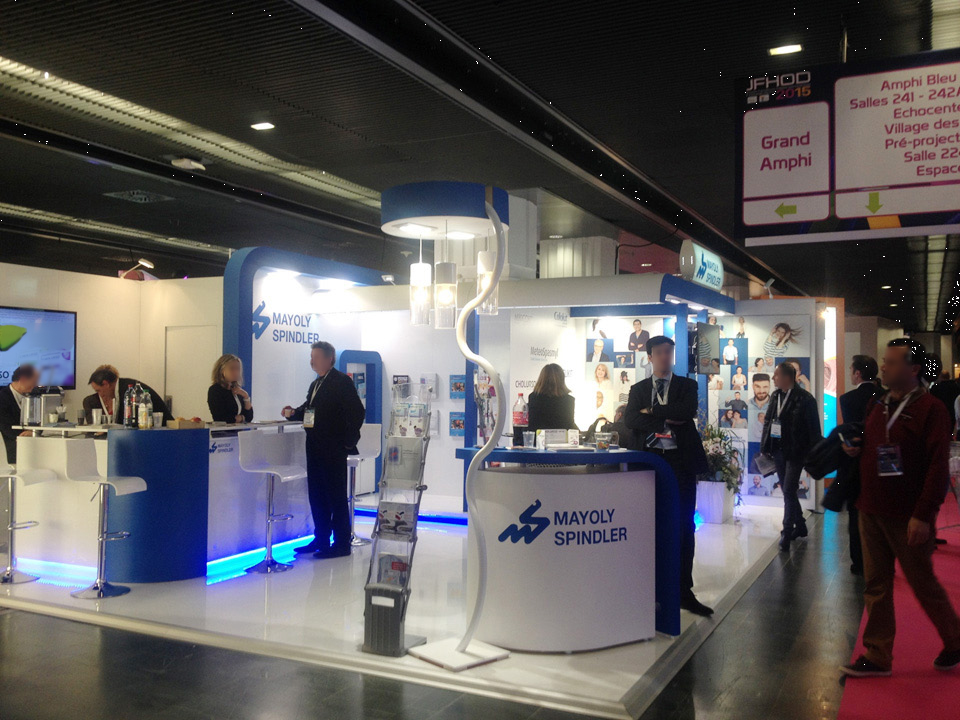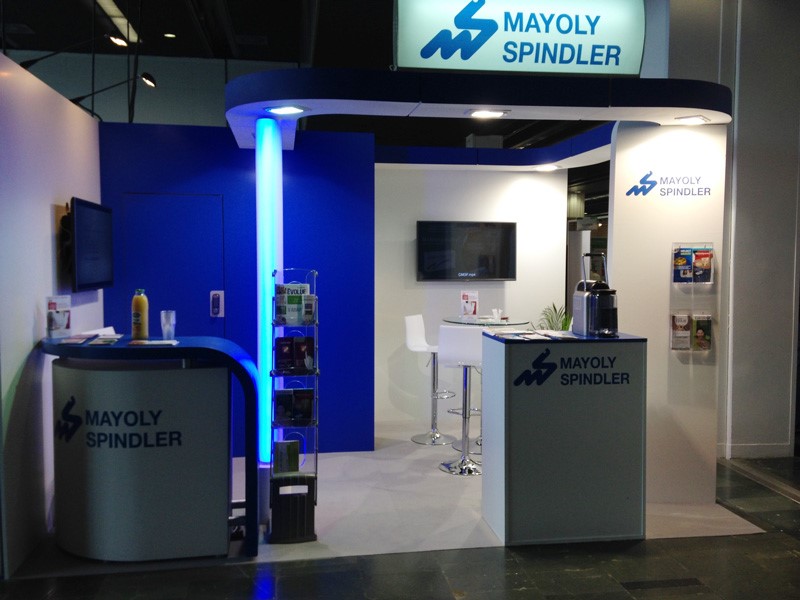Source : Stanislas Chaussade1, Christoph Schmöcker2, Pierre Toulemonde3, Miguel Muñoz-Navas4, Valérie O’Mahony5, Franck Henri5
Background :
Background Adequate bowel preparation is a crucial step in colonoscopy procedure and has been identified as the cornerstone of a quality colonoscopy. Polyethylene glycol (PEG) for bowel cleansing still had up to 10 % unprepared colon.
Mayoly Spindler is involved in research on Irritable Bowel Syndrome as a partner of the French Neuro-Gastroenterology Group (GFNG). Like every year, we are participating in the GFNG Annual Meeting at the Embarcadère in Lyon on 25 and 26 June. Please come visit us at our booth where we will be happy to welcome you.
For more information: gfng-2015-lyon
Pharmaceutical Executive Magazine
Stéphane Thiroloix, CEO of the independent and family owned Mayoly Spindler, reveals how their vision is to become a reference company internationally in the field of gastroenterology and dermocosmetics; how already forty-five percent of their business is done overseas; and how on current projections, excluding external growth, they anticipate to grow by sixty percent by 2020.
You joined Mayoly Spindler as CEO in September 2014, after a career with big pharma. What inspired you to move from a large corporation to a smaller family run company?
The same parameters that kept me going in big pharma for many years. Rather than merely climbing up the corporate ladder, I was more interested in doing things that ensured I enjoyed work each day and piqued my interest. Big pharma is fun – there are great people, stimulating topics, and much to learn. One could really have fun for a lifetime, but after 25 years I was ready for a change in atmosphere. I loved every one of those years, but over time, two things happened. I climbed the ladder and acquired new responsibilities. At the same time, however, the constraints on how pharmaceutical companies operate became narrower. As my title became more important, paradoxically, I was less and less able to express the knowledge I had acquired over the years. The fun began to diminish and I therefore started to look for an environment where I could channel the breadth of knowledge that I had learned – in essence to become more of a generalist.
You feel that you found that with Mayoly Spindler?
Yes, most certainly. With this company being smaller, it is actually an environment where you can express more of the breadth of knowledge that you have to offer. I have been here a year and a half now, and it has delivered great opportunities every single day. It is a great place to work with many opportunities for growth.
What has been the mission assigned to you as the new CEO, and what are your long-term ambitions?
The long-term view has been, and remains, growth to the greatest extent that does not jeopardize our independence. For the owners it is more than simply about sales – this is a company that is connected to its family history and rooted as a source of jobs in the community. Our ambition is to become a reference internationally in the field of gastroenterology and dermocosmetics. You cannot label yourself a reference in any given field. It must come from others, from one’s peers. This is both a challenge, as well as a great source of motivation. In France we have KOLs in functional diseases that see our portfolio as “top drawer” – products they trust and use on a daily basis. Even though forty-five percent of our business is conducted overseas, we have not yet become a global reference – and we need to become one. The same is true when it comes to our dermocosmetics portfolio. We have the largest selling body moisturizer in France, Topicrem. The goal now is to further internationalize this brand.
Mayoly Spindler has strong brand-recognition in France, yet you are lacking the global strength of major international players. From a marketing standpoint, how do you address this issue?
We have successfully ensured that almost half of our business is conducted overseas. This has diluted the risk of concentrating too strongly on the French market, where there is greater market competition and fluctuation. We are now analyzing which countries to target in the next stage of our development. We will look to move from an export-based approach, to one more focused on establishing local strongholds. Despite having a strong base in France, we lack a Pharma presence in Europe’s other major markets: Germany, the UK, Spain, and Italy. In terms of geographic access, which is an important element in our internationalization strategy, we need to develop our footprint in these more mature markets. We have been enjoying increased market growth overseas, particularly in developing markets, including French speaking Africa, Russia, and Mexico. These markets, though, often engender a certain amount of instability. The recent fall of the Russian Ruble for example eroded sales, and a major bankruptcy with the third largest distributor in Mexico was also an unforeseen shock. This underscores again the necessity to balance our risk ratio as a company, and find ways to tap into a broader spectrum of markets. We have been working with registering our major products in different geographic areas. It is a trial and error process, but our main products are in a position to be marketed within these countries. We are seeking new partners that will take on our portfolio, and we are designing innovative solutions to establish significant market share in new geographies.
With this new portfolio, are you concentrating more on OTC products, or seeking other options in these new markets?
We have articulated our growth and international strategy in pharma through prescriptions because there is a notion that Rx is a more universal process: there is a disease, we look for an effect, there is a prescription, a pharmacy, and overall there is a sense of formality to the process. Whereas, with the OTC and self-medication market, it is very culturally influenced, with different countries having different products and different brand names. Yet we are experiencing something interesting in that some of the response to our export portfolio has been suggestions of what can be sold as OTC in other locations around the world. It is coming to our attention now that we have international potential with our OTC portfolio.
Dermocosmetics is one of your main portfolios, which has found much success in France. What has been your experience in navigating expansion strategies within this product market?
In dermocosmetics, companies spend big to grow in France, to build a name in order to utilize that status for sales elsewhere. In our case, we are growing faster than the market in France. Considering the importance of international expansion, turning towards Asia in the dermocosmetics market presents considerable opportunities. We now have market managers in the Latin American and Asian markets. This demonstrates our focus on increasingly tapping into global markets. Our approach in this regard is the following; do fewer things better, and also have company representatives available on the spot in markets, so that there is a greater relation with customers, and more frequent interaction.
In 2013 you signed a global partnership with Ipsen. What has this partnership meant for Mayoly Spindler, and what does Mayoly Spindler offer to the likes of Ipsen, one of France’s largest pharma companies?
Our partnership covers France, but also China and Mexico. In France, it is structured as a cross-promotion agreement for primary care activities: Mayoly’s MeteoSpasmyl benefits from Ipsen’s strength in promoting medicines to general practitioners. In return, Ipsen benefits from Mayoly Spindler’s experience with pharmacies, as we help Smecta and a few more brands gain market share at pharmacy level. We also promote Ipsen’s Smecta (under the brand Iprikene) in Mexico and Ipsen markets our Meteospasmyl in China. It has been a very meaningful benefit to both companies.
You are a relatively new CEO taking on responsibilities of a family run company steeped in its own unique culture and work-habits. What has been your experience in adapting to this change?
Mayoly has been brilliantly run for many years. I concentrate on the company’s commitment to high standards in execution, something that is crucial to our identity as a company. This will remain, even with our plans for rapid growth. For a new CEO, as has been the case for me, three to four months are necessary to observe and listen to what is happening in the company around you. The area that we have moved most rapidly on is the centrifugation of decision making. An interesting idiosyncrasy of family run companies is indeed that there is not a single question that does not merit going right back to the owner! My challenge is to push decision making to the edges. We have been working on governance, empowering individuals and teams to make decisions, ensuring that the lateral connections do not only happen at the executive level. As in any human environment, there are occasional mental barriers towards change, so we have worked on those. Contrary to publicly traded entities, family-owned companies generally are under little pressure to disclose data, and inertia tends to sway towards little information flow. Together with the Executive Committee, we have worked hard to open these information channels and disseminate vital decision-making data; we observed true empowerment gains in return.
It sounds like you have worked to find a balance between the working culture of a small family owned business while implementing standards seen elsewhere in large corporate companies. What other elements in this regard have you worked on?
Large companies and big pharma are stereotypically assumed to exert high pressure on results. Symetrically, there is an assumption that privately-owned companies are gentler; In many ways they are, but it is wrong to translate that into an absence of results-orientation. In fact the incarnated reality of the shareholding family can be seen as additional pressure to deliver vs the rather distant existence of speculative investors. A culture of high standards and a reasonable sense of urgency are therefore perfectly compatible with a family-owned environment. Mayoly Spindler has exciting growth prospects for the near future to look forward to. Our current projections, excluding external growth, anticipate for us to grow 60 percent by 2020 – this is extremely promising. Dermocosmetics will double over the next five years. Significant change is inevitable – there will be growing pains, and change hurts before it becomes pleasant, but we will be true to our commitment to maximize growth whilst remaining independent. In any case the journey together must always remain enjoyable and our leadership role includes making sure our teams enjoy the ride. We must ensure that we focus on the journey as much as we do on the targets.
Any thoughts you would like to share about the French healthcare market as a small, yet growing, company within the industry?
There is room for success in the French pharma market. Whilst it has become increasingly challenging for costly innovation endeavors and rather devastated in entire segments of the generic market, there are still very relevant pockets in the pharma market where agile companies can operate successfully. Like all our peers we deal with risk, we deal with administrative viscosity, but with a solid portfolio, a strong team and valuable partners we feel very strong expanding into other markets with France as our launchpad.
Click here to read more articles and interviews from France, and to download the latest free pharma report on the country.
The French Neuro-Gastroenterology Group (GFNG) combines clinical and basic research units interested in the mechanisms and treatment of functional disorders associated with digestive pain and discomfort.
The GFNG General Meeting was held this year on 25 and 26 June in Lyon, and brought together a hundred participants including 9 national and international speakers (Swedish, Spanish, Swiss). The delegates were able discuss various issues with the speakers at the scientific sessions, in particular Irritable Bowel Syndrome. Presentation topics included visceral hypersensitivity, inflammation of mucous membranes and abdominal bloating.
Like every year, Mayoly Spindler was present at the meeting to support gastroenterologists and their research.
The Francophone Forum for Hepato-Gastroenterology and Digestive Oncology (JFHOD) took place from March 19 to 22 at the Paris Convention Centre.
JFHOD 2015 was exceptionally busy with over 3770 participants and 55 industrial and institutional partners.
The country in the spotlight was Algeria and the main theme was genetics.
All our French-Algerian teams took turns staffing our booth to speak with the gastroenterologists.
Our two lunch workshops were a great success, with nearly 700 doctors attending.
An article will be published in the Gastroenterology newsletter that Mayoly Spindler sponsors and in the journal Hépato-Gastro & Oncologie Digestive.
Our Franco-Algerian Symposium brought together 54 Algerian gastroenterologists on the theme: Helicobacter pylori infection: "Commonalities and specificities in France and Algeria."
JFHOD is THE conference of the year for gastroenterology for Mayoly Spindler. We were able to make our mark at the 2015 Forum and emerge as an essential partner for gastroenterologists.
Mayoly Spindler participated in the 9th Congress of General Practice France which took place from 26 to 28 March 2015 at the Paris Convention Centre.
This congress, organized by the College of General Medicine, attracted 4000 participants this year, including 72 industrial partners.
At the Congress, general practitioners can learn about and discuss the issues they encounter in their daily practice.
Mayoly Spindler is a partner of the Francophone Forum of Hepato-Gastroenterology and Digestive Oncology 2015. Visit our booth and our 2 workshops lunches: "Optimizing colonoscopy in 2015: for whom, how, based on what criteria and how far?" and "Cholestatic diseases and ursodeoxycholic acid: current practices."
For more information : www.jfhod.com/.










